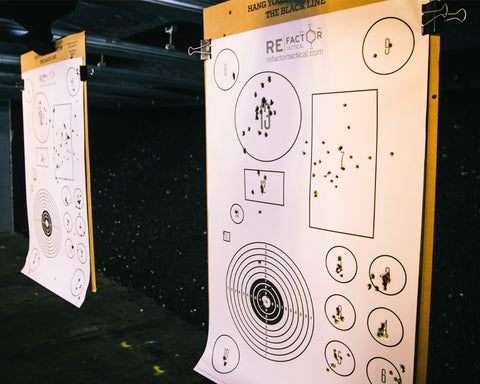What is a Mortgage?
A mortgage is a loan given to people from a lender (such as USAA) to buy a house when you can’t afford the up front cash. With home prices in the hundreds of thousands, not many of us are going to be able to come up with that kind of cash. If you already own property and need to raise funds for whatever reason, USAA would use a lien on the property you own. Simply put, a lien is a way for the lender to get a sense of security with the loan by charging interest and using your property as collateral.
How to Buy A House With USAA?
Buying a house is going to be the biggest purchase of your life, and there is no reason to rush that purchase without doing your due diligence. We have created a checklist on the things you need to think about and learn before you take on a $250,000 loan. The 3 main questions you need to ask yourself first, are “Am I ready to buy a house?”, “How Much Money will I need?” and “What rules and tips should I consider before buying a house?
| 3 Questions to ask yourself before you buy a home | |
| Am I ready for a home | How much do I make? How Much Do I Spend? Do I have Good Credit? |
| How much money will I need | Down Payment, Closing Costs, Moving Expenses, Move-in Costs, and do I have an emergency fund? |
| What is a VA Loan? | If you don’t have cash for a house, like 90% of us, you’ll need a loan. If you qualify, this is a tremendous opportunity you don’t want to miss out on. |
Am I Ready To Buy a Home?
As with any informational blog, we have to start at the beginning for everyone to start at the same place and hopefully finish with the best home they could have wanted. The first thing to consider is your current financial situation, in regards to credit cards, student loans, how much you make each year. If you have too much debt, chances are that you should work on fixing your situation and worry about buying a house when you’re more financially stable.
*If you’re worried that you can’t pay back your debt and need help, Freedom Debt Relief can help you.
The biggest question after that is how much house can you afford based on your credit score and annual income of all your sources, including collateral, such as cars, boats, etc… One reason new homeowners get into trouble with payments is they fail to calculate the cost of ownership, such as property taxes and home insurance. A simple fix to this problem is to keep ALL housing costs between 25% to 36% of your take-home pay. So if your family brings home $8,000 per month after taxes, your mortgage payment, including taxes and insurance, should be between $2,000 and $2,880. I would always go on the lower side (20-25%) to give yourself more room to buy things like a lawnmower, leaf blower, snow blower, furniture, and kitchen appliances.
How Much Money Will I Need to Buy a Home?
The amount of money needed is based on how much cash you have, how much you’re putting on down payment, and the closing costs. You’ll need to show something called Earnest money, which is cash that you’ll need up front to show the seller you’re serious about buying the house. Once you put the 1% or so upfront, you can use this towards the price of the house if you buy the house. If you don’t buy the house, ask your agent or lawyer about opt-out rights, you have to protect you from losing that money.
Down Payment
When considering a down payment, most banks require a 20% down payment to avoid PMI, which could cost an extra $500-$1,000 per month. This is so important to your financial health, so make sure you know what type of mortgage you’re getting. As I have said many times before, your credit score will be a huge factor in whether the USAA (Every bank treats credit score the same). The lower your credit score, the better APR you’re going to get on the house, which will result in less interest paid the bank throughout the term of your loan. One thing to consider is the larger the down payment you make, the lower interest rate, and monthly payment you’ll make.
Closing Costs
Closing costs are charges for an appraisal, credit report, home inspection, title insurance, document preparation, homeowners insurance, taxes, flood-zone determination. Closing costs on buying a house is the most overlooked expense when calculating what you can and can’t afford. A rule of thumb is to calculate 2% to 5% of the overall price to get your closing costs, but I always recommend to leave yourself more room, so go with 5%. If you calculate 5% and closing costs are only 2%, you’ll be more prepared and be able to put that money on top of the down payment or for other bills.
*Lenders must give you a detailed list of the projected costs within three days of applying for a loan. Review this carefully.
Moving Expenses
If you’re active duty, ignore this section because moving expenses are paid for by Uncle Sam, but the rest of us need to calculate those costs. I grew up in a military household (I’m not calling myself and Army Bratt) from the time I was born on Ft. Riley Kansas to the time I graduated high school in Mannheim, Germany (’04 Stand Up!). I have lived or traveled through 48 of 50 states, been to every country in Europe, and Most countries in the Middle East. I say this to give context to my desire to always hire someone to help you move. You can save money if you must, but moving sucks if you don’t have trucks, dollies, tape, boxes, and care about your back. With this being said, the average local moving companies will cost anywhere between $200-$1,000. Once you figure that cost out, its time to take things you don’t need to Goodwill or Salvation Army, I promise you’ll thank me later.
Move-In Costs
Once you close on your new home, you’ll be greeted with even more purchases you’ll need to make to make your home comfortable and safe. You’ll have to turn the power on, which will require a deposit for most utilities, and these deposits can cost $50-200. You’ll need new locks for all doors that have a lock and key associated with it, which can run you up to $500. If you’re curious about the different options for your home security, such as smart home security systems, our blog on “7 Best Home Security Companies For Veterans And Service Members”. If you’re like most of us moving into new homes, you’ll also need a whole lot of paint for all the rooms inside your home (For my sanity, can people please stop painting every room in a different color?!). This can easily reach well over $1,000, depending on the brand, style, and color of paint you use.
*For tips on how to reduce costs for home security, read “7 Inexpensive Ways to Make Your House More Secure”
Emergency Fund
An Emergency Fund is the money you have in cash, in case of situations like crashing your car, emergency medical bills, or a death in the family. Every accountant and lender will always recommend at least 3 to 6 months of cash saved up in case of these kinds of emergencies. This is also something you need to think about because if you have no emergency fund after purchasing a house, you could compromise your family. This is just another sign that maybe you should wait to purchase a house until your financials get more stable.

What Are VA Loans?
VA Loans are a type of mortgage that is guaranteed by the Department of Veterans Administration (VA) as the promise to repay the loan. The VA doesn’t issue the loan to the Veteran or service member, they just promise a private lender that the debt will be repaid. There is nothing more powerful for a civilian company than the federal government guaranteeing they will get their money if they loan to the homebuyer.
USAA VA Loan
USAA is one of the top lenders to Veterans and their families in the country and offers incredible deals if you’re qualified. Eligibility is based on whether you’re active duty or a separated Veteran, if you served in peacetime or wartime, how long you served, and your current financial status. You must have an approved Certificate of Eligibility and follow the guidance of the VA by reading this page. Since my colleague already wrote an all-encompassing blog on USAA VA Loans, I encourage you to read her blog for all the information you could ask for. Once you have read her work, you’ll be ready to learn all about the different kinds of mortgages that USAA will offer.
How to Get a Mortgage Preapproval
After all your research is complete, it’s time to get working on getting preapproval for your mortgage so you can focus on buying the right house for you. A preapproval is just a way of showing the lenders that all of your finances and credit are ready to go. This eliminates any doubt that a lender would have and speeds up the process of buying and closing on the house. For a more complete guide on preapproval, click here.
Conclusion
Before you get into what kind of mortgage you want to apply for, you need to have a solid starting point and do your research. We have discussed how to determine how much house you can afford, the costs associated with buying a house, and how to get a loan through USAA with the support of the VA. I can assure you that if you read this blog and its associated links, you’ll avoid being caught off guard by hidden expenses that we often don’t think about. Enjoy the confidence of knowing all of your T’s are crossed, and I’s dotted.






Leave a Reply
Your email address will not be published. Required fields are marked *